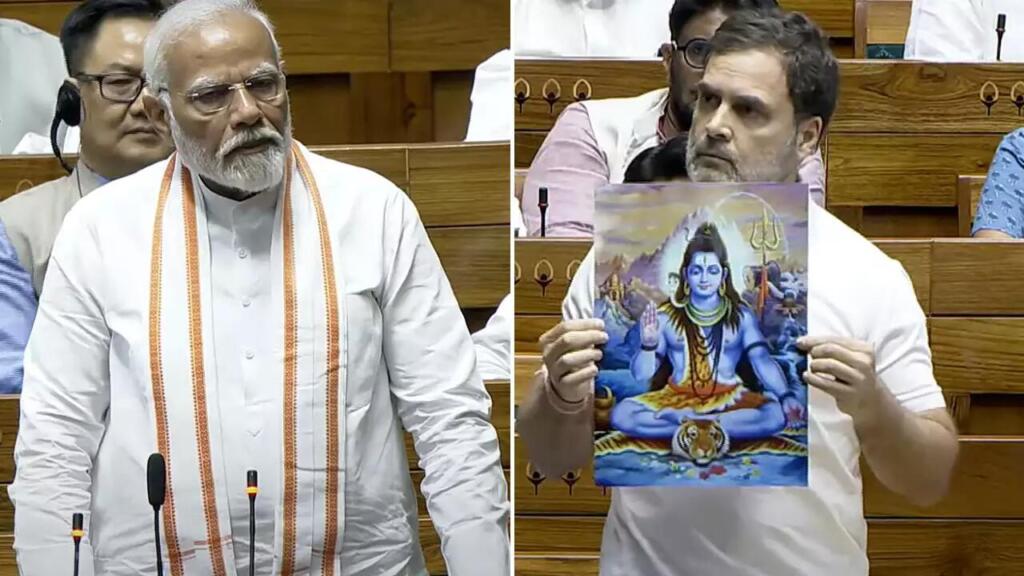The Prime Minister, his team, and Hindus across India must remain aware of the significant stakes involved. On June 2, 2024, Rahul Gandhi, the opposition leader, delivered his first speech in Parliament. In this speech, he not only criticized Prime Minister Narendra Modi but also portrayed a section of Hindus as violent and hateful.
Misinterpretations and Reality
The Bharatiya Janata Party (BJP) has attempted to twist Gandhi’s words as labeling the entire Hindu community as violent and hateful. However, the Indian public is astute enough to recognize this distortion. Underestimating the intelligence of the populace is a grave mistake, especially when appearing defensive.
In reality, Rahul Gandhi’s statements were more harmful and dangerous. He accused Hindus who resist conversion attempts and those who oppose violent attacks on their sacred traditions of being intolerant. This mischaracterization targets those Hindus who democratically stand against such aggressions.
Impact Beyond Words
This debate is not merely a parliamentary issue; it has profound implications for the broader Indian society. Narendra Modi and his team might not fully grasp the civilizational weight they bear. Some Hindus supporting Rahul Gandhi today may not realize that the 73-year-old Prime Minister is currently the last line of defense preventing their children from facing the same fate as minorities in Pakistan and Bangladesh.
Tamil Hindus’ Crucial Perspective
This concern is particularly relevant for Tamil Hindus. Even the most ardent Dravidianist Hindu would acknowledge that the 2009 massacre of Tamils in Mullaivaikal might have been averted if Narendra Modi had been the Prime Minister. During Manmohan Singh’s tenure, with Sonia Gandhi’s family exerting control, India silently condoned one of the most horrific mass killings in recent South Asian history.
While Sonia Gandhi remained silent, Rahul Gandhi showed indifference. Consequently, many Tamil children, women, and youth suffered horrendous fates. Narendra Modi, however, has demonstrated empathy and support for Sri Lankan Tamils, despite lacking a voter base in Tamil Nadu. His actions highlight the stark contrast between those who truly care for Tamils and those who feign concern.
Historical Neglect and Current Leadership
Jawaharlal Nehru neglected the issues faced by Sri Lankan Tamils, and his successors, Indira and Rajiv Gandhi, used their plight for political gain. Sonia and Rahul Gandhi remained indifferent during the Tamil massacres. In contrast, Narendra Modi’s efforts to support Sri Lankan Tamils illustrate his commitment to India’s broader heritage.
Even if India had re-elected Atal Bihari Vajpayee in 2004, the 2009 genocide in Sri Lanka might not have occurred. Thus, the DMK-INC alliance’s claim of defeating the BJP indirectly contributed to the mass killings of Tamils in Sri Lanka.
Encounters with Religious Hatred
Rahul Gandhi’s associations raise concerns. During his yatra, he met with Rev. George Ponnaiah, who had recently delivered a hateful speech against Hindus. This meeting with a figure known for his anti-Hindu rhetoric, especially in a Christian-dominated area like Kanyakumari, is troubling. Despite this, Rahul Gandhi listened passively, which contradicts his message of peace and harmony in Parliament.
Modi’s Inclusive Actions
Prime Minister Narendra Modi, aware of the challenges Christians face, has taken steps to ensure their safety. He facilitated the return of Christian aid workers from Afghanistan and rescued Christian fishermen from Sri Lanka. His actions demonstrate a commitment to all Indians, regardless of religion.
Promoting Divisive Figures
Rahul Gandhi’s endorsement of Kancha Ilaiah, a controversial academic, is also alarming. Ilaiah’s writings, which include inflammatory statements about Brahmins, were promoted during UPA rule. This endorsement aligns with Gandhi’s recent remarks in Parliament, furthering a divisive agenda.
Modi’s Achievements
Narendra Modi’s tenure has brought significant improvements to India, including housing, sanitation, and infrastructure development. His efforts have reduced poverty and corruption while digitalizing the economy. However, his strategic misstep lies in his perceived affiliation with the affluent, contrasting with Rahul Gandhi’s misleading image as a champion of the poor.
Conclusion: The Future of Hindu Unity
In conclusion, appearances in democracy can be deceptive. As India stands at a crucial juncture, the Prime Minister, his team, and the Hindus of India must remember that the future of Hindu children as Hindus is at stake. The Prime Minister’s response should reflect these critical considerations.
ALSO READ: Why are women suffering so much under Mamata’s rule?
